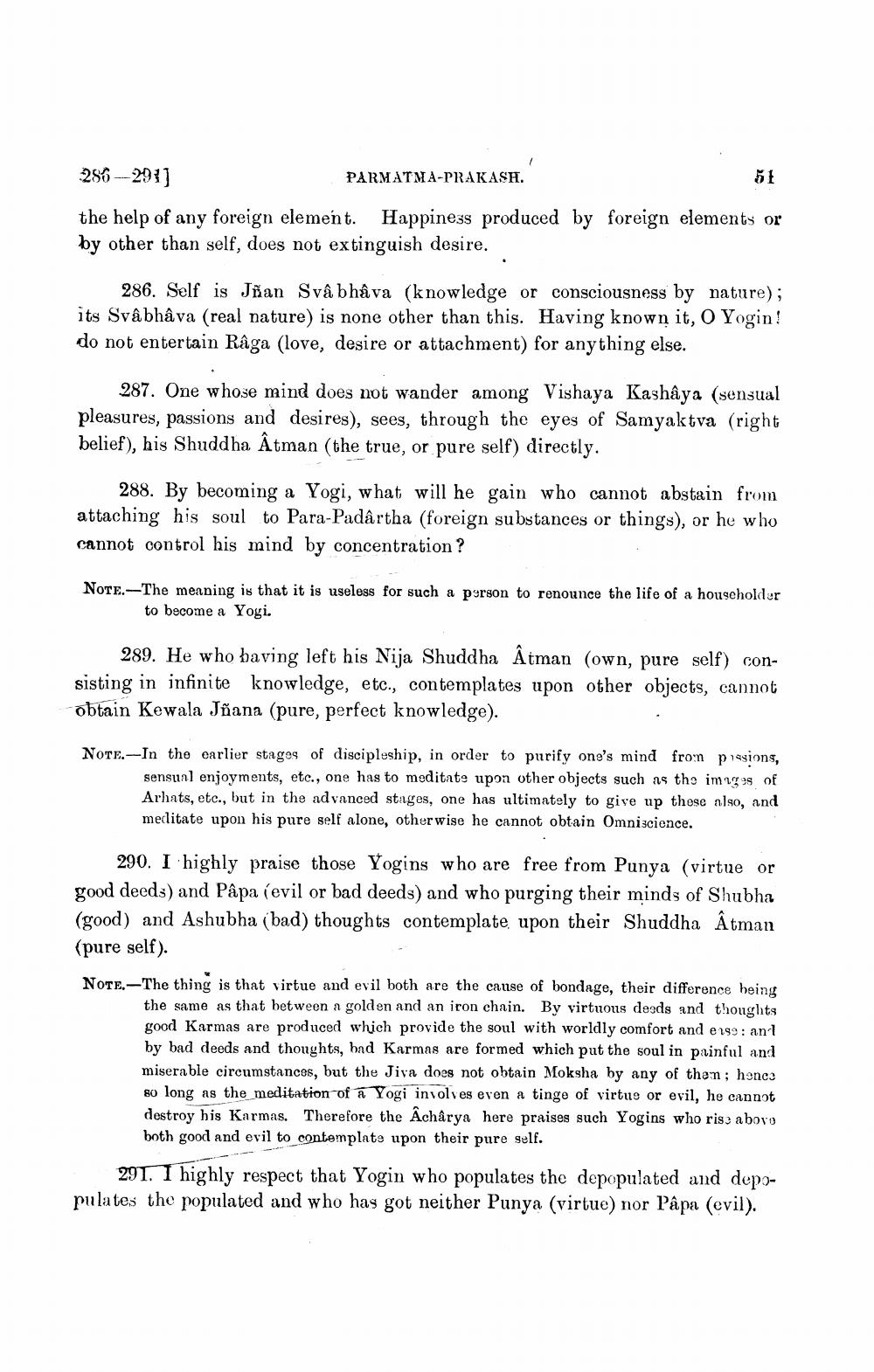________________
280—291]
PARMATMA-PRAKASH.
51
the help of any foreign element. Happiness produced by foreign elements or by other than self, does not extinguish desire.
286. Self is Jñan Svâbhâva (knowledge or consciousness by nature); its Svâbhâva (real nature) is none other than this. Having known it, O Yogin! do not entertain Râga (love, desire or attachment) for anything else.
287. One whose mind does not wander among Vishaya Kashaya (sensual pleasures, passions and desires), sees, through the eyes of Samyaktva (right belief), his Shuddha Atman (the true, or pure self) directly.
288. By becoming a Yogi, what will he gain who cannot abstain from attaching his soul to Para-Padârtha (foreign substances or things), or he who cannot control his mind by concentration ?
NOTE.-The meaning is that it is useless for such a person to renounce the life of a householder
to become a Yoyi.
289. He who baving left his Nija Shuddha Atman (own, pure self) consisting in infinite knowledge, etc., contemplates upon other objects, cannot obtain Kewala Jñana (pure, perfect knowledge).
Note.- In the earlier stages of discipleship, in order to purify one's mind fron passions,
sensual enjoyments, etc., one has to meditate upon other objects such as the images of Arhats, etc., but in the advanced stages, one has ultimately to give up these also, and meditate upon his pure self alone, otherwise he cannot obtain Omniscience.
290. I highly praise those Yogins who are free from Punya (virtue or good deeds) and Pâpa (evil or bad deeds) and who purging their minds of Shubha (good) and Ashubha (bad) thoughts contemplate upon their Shuddha Atman (pure self).
NOTE.-The thing is that virtue and evil both are the cause of bondage, their difference being
the same as that between a golden and an iron chain. By virtuous deeds and thoughts good Karmas are produced which provide the soul with worldly comfort and e199: an by bad deeds and thoughts, bad Karmas are formed which put the soul in painful and miserable circumstances, but the Jiva does not obtain Moksha by any of then; hence 80 long as the meditation of a Yogi involves even a tinge of virtue or evil, he cannot destroy his Karmas. Therefore the Acharya here praises such Yogins who ris, abovo both good and evil to contemplate upon their pure self.
291. I highly respect that Yogin who populates the depopulated and depopulates the populated and who has got neither Punya (virtue) nor Pâpa (evil).




